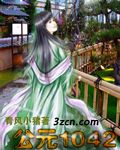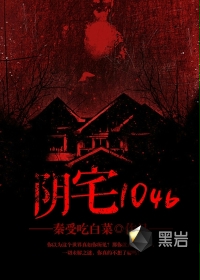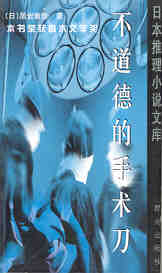04道德经英译本85种-第29部分
按键盘上方向键 ← 或 → 可快速上下翻页,按键盘上的 Enter 键可回到本书目录页,按键盘上方向键 ↑ 可回到本页顶部!
————未阅读完?加入书签已便下次继续阅读!
The ceremonial observances of those in supreme authority are active; and there is not a single man who does not respond to them。 Under these circumstances all will bare the arm and submit to the guidance 'of their rulers'。
Therefore; when the TAO has attained its full development; it results in Virtue; when Virtue has attained its full development; it results in Benevolence; when Benevolence has attained its full development; it results in Rectitude; when Rectitude has attained its full development; it results in Ceremonial observances。
* It is necessary to give my authority; in a special manner; for this translation。 It is found; of course; in the Commentary:?##。 There is no getting over so plain a direction as this。
When ceremonial observances are nothing but an attenuation of uprightness and sincerity; they become the head and front of disorder。
* That is; when they are dissociated from virtue; benevolence; and rectitude; and degenerate into empty formalism。
Those who are in advance of others in knowledge constitute the outward glory of TAO; and; from such; comes the beginning of folly棧ecause those who succeed them are dazzled by the display and take no account of the reality within'。
Thus it is that great men take their stand on what is solid; and not on what is flimsy; on what is true; and not on what is showy。 For this reason they discard the one and adopt the other。
39
The things which of old obtained the Unity are;?br》
Heaven; which by it 'the pure yang' became clear。
Earth; which by it 'the pure yin' became motionless。
The gods; which by it became divinely intelligent。
The valleys; which by it became full。
All creatures; which by it are produced。
Princes and Kings; which by it rule uprightly。
* The Commentator says that the ### is the offspring of TAO; and the progenitor of the Cosmos?##。 Compare chap。 XLI。
To carry out this doctrine to the proof:桯eaven; if deprived of its source of clearness; would be in danger of disruption; Earth; if deprived of its source of motionlessness; would be in danger of upsetting; the gods; if deprived of their source of divine intelligence; would be in danger of being abandoned by their worshippers; valleys; if deprived of their source of replenishment; would be in danger of drying up; creatures; if deprived of their source of production; or life; would be in danger of annihilation; and Princes and Kings; if deprived of their source of honour and dignity; would be in danger of being overthrown。
Therefore; the ruling classes regard the commonalty as the foundation 'of their power' and those in high position necessarily regard the proletariat as that upon which they rest。 Hence Princes and Kings style themselves orphans; solitary ones; unworthy ones; is not this an acknowledgment that the commonalty is their support; or point d'appui? Is it not so? To come; then; to the point: when patricians and plebeians are both without 'conflicting' private desires; the only difference between the two is that the former resemble polished gems; while the latter are like unhewn stones。
* The meaning of this is that the ruling classes bear the same relation to the proletariat that jade bears to common stone。 Both are the same material at bottom; the only ditference is external。 The two classes are described; by metonomy; as those who keep many carriages and those who keep none。
40
Resistance is the motion of TAO棧r; Motion implies a withstanding of TAO; the essence of which is repose'。 Pliancy is TAO put into practice。
All things in the world owe their life to its 'TAO'S' existence; and this existence sprang from non…existence 'the ### from the ###'。
41
When scholars of the first grade hear of TAO; they sedulously practise it。
When second…rate scholars hear of it; they now observe; now lose it。
When scholars of the lowest sort hear of it; they greatly deride it。 If it did not provoke derision 'on the part of such'; it would not be worth the name of TAO。
Wherefore; as the ancient apophthegms express it;?br》
Those who are illuminated quoad TAO are as though in darkness棧or its depths are unfathomable'。
Those who enter TAO are as though they receded 'from caution and hesitation'。
Those who regard the TAO as heterodox appear as though belonging to the same class 'as its true adherents'。
* These three descriptions apply respectively to the three classes of scholars above enumerated。 The last are said to appropriate the outward characteristics of the best scholars; passing themselves off as belonging to the same class。
The highest virtue resembles a ravine棧n profundity'。
Great virtue resembles ignominy 'in that it is not the highest'。
Widespread virtue is as though insufficient。
Established virtue appears like meanness 'in the eyes of foolish men'。
The purest 'human' character; as though liable to excess。
The Great Square has no corners。
* This is the TAO; whose extent is limitless; but which has no form。 See K慳ng Hsi; character ###。
The Great Veseel takes long to complete。
The Great Sound is but seldom heard。
The Great Simulachrum has no form。
TAO is imperceptible and nameless; and it is only TAO that excels in imparting itself 'to men' and enabling them to achieve merit。
42
TAO produced the First棧eaven'。
The First produced the Second棧arth'。
These Two produced the Third。
* The Third; which was produced by the Heavenly and Earthly Afflati; consisted of the six Kua梒hên; k慳n; kên; hsün; li; and tui; three of which are Yang and three Yin。 See Confucius's Commentary on the Yi Ching; Book IV; chap; 11。
The Third produced all things; and these turn their back upon the Yin and embrace the Yang。 The intermingling of these two Afflati results in harmony。
What men most hate is to be orphaned; widowed; and unworthy; and yet Princes and Dukes so style themselves。 Wherefore; when things are diminished; they increase; and when they are increased; they diminish。
What men teach me; that I teach them again。 Violent and overbearing men never die a natural death。 It is my object to instruct men as a father 'nourishes his children'。
43
The weakest things in the world subjugate the strongest。
There are no men who persevere uninterruptedly 'in the culture of TAO'。 I know from this that in inaction there is advantage。 There are few in the world who attain to teaching without words; or to the advantage that results from inaction。
* The expression ### is; literally; without a hiatus; without a gap。 ### is elliptical for ###; interval; break; or intermission。
44
Which is the more important梠ne's reputation or one's body?
Which is the more valuable梠ne's body or one's goods?
Which is the greater evil梘etting or losing?
Inordinate love cannot but result in the utter abandonment of its object 'though eventual disgust'; and overhoarding cannot but result in heavy loss。
He who knows when he has enough does not lay himself open to shame。 He who knows when to stop; will not incur danger。 These two contain the elements of endurance。
45
The perfection of the great 'TAO' is as though incomplete; its uses are inexhaustible。
The fullness of the great 'TAO' is as though evaporating; its responsiveness 'to requirements' is limitless。
The straightness of the great 'TAO' is as though crooked。
The skilfulness of the great 'TAO' has the appearance of stupidity。
The eloquence of the great 'TAO' is as though defective of speech。
* The perfection; fullness; straightness; etc。; of TAO as exemplified in the characters of men; these virtues are hidden; and therefore unrecognised by others。
Restlessness overcomes cold; quiescence overcomes heat。 Purity and repose will make the whole world upright。
46
When the world is under the influence of TAO; 'q。d。; at peace'; swift horses are discarded as so much ordure。
When the world is without TAO; 'q。d。; in a state of war or anarchy'; war…horses are born even in remote wilds; 'they are bred everywhere'。
There is no sin greater than that of permitting desire。 There is no calamity greater than discontent。 There is no fault greater than the desire of gain。 Wherefore the sufficiency of those who are contented is an enduring sufficiency。
47
'There are those who' understand all about the Empire without going out of doors。'There are those who' see the course of Heaven without peeping through the lattice。
The further one goes 'in pursuit of TAO' the less one knows of it。
Thus the Sage has knowledge without going in quest; he can identify things without seeing them; and he achieves results without working。
48
In pursuing the study 'of TAO' there will be daily increase; in acting out the TAO 'when learnt' there will be daily diminution。
* This marks the characteristics of the two stages。 In the first the man appears to make rapid progress in learning and philosophy; and so cuts a figure before the world; in the second; he becomes simple; humble; self…effacing; and thus may be said to diminish。
When this diminution is still further diminished; he will arrive at a state of inaction; or quiescence。
There is nothing that cannot be done by inaction。'The Sage' ever employs inaction in administering the Empire。 As for those who put themselves to trouble in the matter; they are inadequate to the task of government。
49
The Sage's heart is not immutable; he regards the people's heart as his own。
The virtuous I encourage; or approve; the unvirtuous I would incite to virtue。 The virtue 'of the Sage' makes others virtuous。
The trustworthy I trust; the untrustworthy I would make trustworthy。 The virtue 'of the Sage' engenders trust。
When the Sage occupies the throne of the Empire; he is anxiously bent on making it all of one mind。 The people all fix their ears and eyes on him; and the Sage treats them as his children。
50
Men; in being born; em





